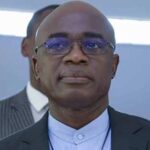The administration of Local Government Areas (LGAs) has intensified the tension between state governors and the federal government. At the heart of the issue is the fundamental question of fiscal and administrative control over LGAs, which are constitutionally recognised as the third tier of government under Nigeria’s federal structure.
In light of the growing discontent and silent power shifts among political elites, this issue threatens to catalyse a broader political realignment ahead of the 2027 general elections. The current crisis in Rivers State and the interplay of Federal Government institutions including the Presidency is worthy of note.
The Supreme Court’s declarative judgment, reinforcing the financial autonomy of LGAs, has come as a direct affront to many state governors. Historically, state governments have exercised considerable control over LGAs finances through joint state-local government accounts, as stipulated in Section 162 (6) of the 1999 Constitution of the Federal Republic of Nigeria (CFRN). However, this provision has often been manipulated, with some governors allegedly diverting LGA funds, effectively starving local councils of the resources they need to function independently.
With the Supreme Court’s ruling, the Federal Government, under President Tinubu’s leadership, has signalled its commitment to enforcing greater financial autonomy for LGAs, a move that challenges the deeply entrenched powers of state governors. This conflict is not just about finances—it reflects a broader struggle for political dominance and control, which has significant implications for governance at all levels.
- Blackout in parts of Kaduna, Kano as vandals destroy transmission towers
- How northern Nigerian women find voice in digital spaces
Compounding this tension is the contentious debate surrounding the State Independent Electoral Commissions (SIECs), established under Section 197 of the CFRN. SIECs have long been criticised for their lack of independence, as they are often seen as extensions of state governors, used to manipulate LGA elections in favour of ruling state parties. The call for the abolition or reform of SIECs, to transfer electoral oversight to the Independent National Electoral Commission (INEC), has gained momentum as stakeholders argue for more credible LGA elections.
The continued existence of SIECs, in their current form, undermines the spirit of democratic governance at the grassroots level. Critics argue that as long as governors control LGA elections, genuine local autonomy remains elusive. Thus, the Supreme Court’s ruling, alongside the push for electoral reforms, has intensified the debate on the proper constitutional role of states in LGA governance.
Beneath the surface, silent rumblings among the political elite suggest that this dispute over LGA financial autonomy and the existence of SIECs is fuelling broader demands for realignment and recalibration of Nigeria’s federal structure. Unlike the usual partisan divides, this issue has cut across political party lines, with political actors from both the ruling and opposition parties recognising the need for structural reforms.These rumblings indicate that the elite are beginning to acknowledge the limitations of Nigeria’s current governance framework, particularly the over-centralisation of power at the state level. There is growing support for recalibrating the balance of power between the three tiers of government, ensuring that LGAs are empowered to play a more active role in governance and service delivery. However, this recalibration is fraught with risks, as any reforms could significantly alter the political landscape ahead of the 2027 general elections.
The core of the crisis lies in the provisions of Section 162 (6) and (8) of the CFRN, which govern the allocation of funds to LGAs through the joint state-local government account. The Supreme Court’s judgment has exposed the contradictions and ambiguities in these provisions, particularly regarding the true autonomy of LGAs.
Without urgent legislative intervention to clarify these constitutional provisions, Nigeria risks plunging into a major constitutional crisis.State governors, who have long benefitted from the status quo, are unlikely to relinquish control easily. However, the growing pressure for reform—both from within the political elite and from civil society—suggests that the status quo is unsustainable.
The National Assembly, in its role as the chief legislative body, must act swiftly to address these constitutional contradictions. Failure to do so could lead to prolonged legal battles, further governance paralysis, and escalating tensions between state and federal authorities.
Ginger-Eke, a communication expert wrote via: [email protected]

 Join Daily Trust WhatsApp Community For Quick Access To News and Happenings Around You.
Join Daily Trust WhatsApp Community For Quick Access To News and Happenings Around You.


